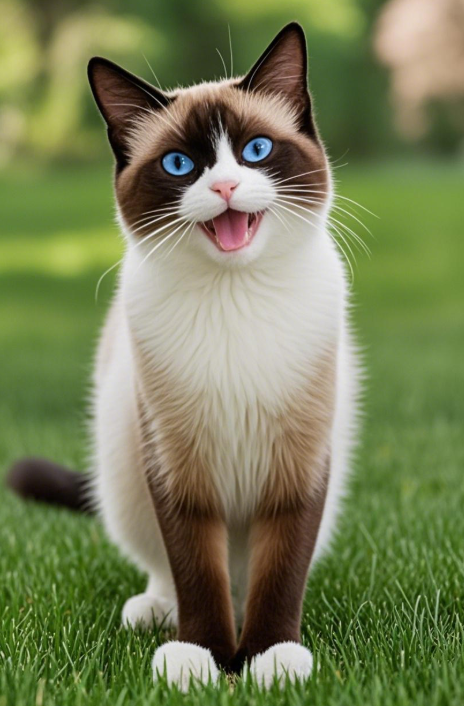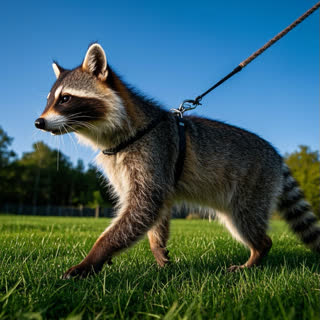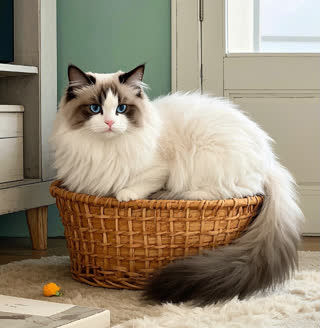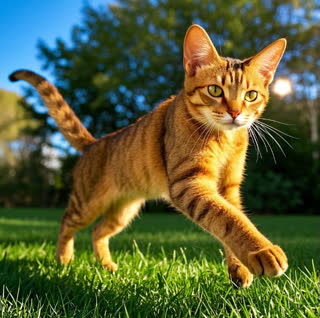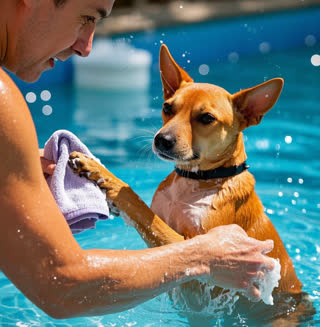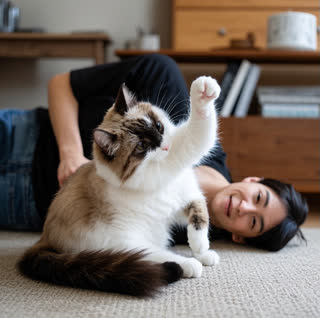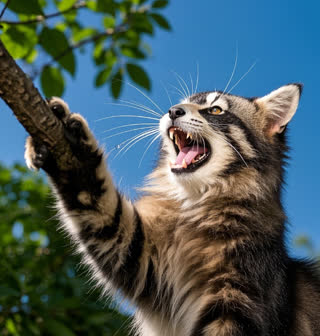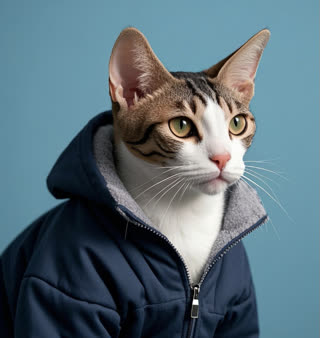Introduction to the Snowshoe Cat Breed
The Snowshoe cat breed is a captivating mix of elegance and charm, renowned for its striking blue eyes, distinctive white paws, and affectionate personality. A hybrid of Siamese and American Shorthair ancestry, this rare feline combines intelligence with playfulness, making it a favorite among cat enthusiasts. Recognized by major associations like TICA and ACFA, the Snowshoe cat breed stands out for its "snow boot" markings and sociable nature. In this comprehensive guide, we’ll explore their history, care needs, and why they’re a top choice for families seeking a loyal companion.
The Fascinating History of the Snowshoe Cat Breed
Unexpected Origins in the 1960s
The Snowshoe cat breed emerged accidentally in Philadelphia when a Siamese breeder noticed kittens with unusual white feet in an otherwise traditional litter. Intrigued by this anomaly, breeders began crossing Siamese cats with American Shorthairs to stabilize the trait, later introducing Oriental Shorthairs to refine their physique.
A Rocky Road to Recognition
Due to recessive genes controlling their iconic markings, early breeding efforts faced challenges. Poor documentation and inconsistent litters delayed official recognition until the 1990s. However, historical records hint at earlier white-pawed Siamese cats, including depictions in 19th-century art.
Physical Features: What Defines the Snowshoe Cat Breed?
Signature Markings and Coat Colors
Kittens of the Snowshoe cat breed are born pure white, developing their dark “points” (ears, face, legs, and tail) within weeks. Their short, glossy coat comes in seal, blue, chocolate, or lilac points, contrasting beautifully with their snowy feet. Key traits include:
White "Snowshoes": All four paws feature crisp white markings.
Facial "V" Mask: A distinct inverted V shape between the eyes.
Vivid Blue Eyes: A hallmark inherited from their Siamese lineage.
Body Structure and Size
This medium-sized breed boasts a muscular yet agile build. Males weigh 9–12 lbs (4–5.5 kg), while females average 7–10 lbs (3–4.5 kg). Their triangular head, almond-shaped eyes, and proportional tail create a balanced, athletic appearance.
Personality: Why the Snowshoe Cat Breed Steals Hearts
Affectionate and Social Nature
The Snowshoe cat breed thrives on human interaction, often shadowing owners and greeting guests at the door. Their dog-like loyalty and gentle demeanor make them ideal for families with children or other pets.
Playful Intelligence
These cats excel at puzzle toys, fetch games, and even leash training. Their curiosity drives them to explore cabinets, sinks, and high perches. Without mental stimulation, they may resort to mischief—a testament to their cleverness.
Vocal but Not Overbearing
While less talkative than Siamese cats, Snowshoes communicate with soft chirps and trills. They’re known to “converse” with owners, especially when seeking attention or treats.
Caring for Your Snowshoe Cat Breed: Health and Maintenance
Grooming Simplified
Their short coat requires minimal upkeep—brush weekly to reduce shedding. Trim nails every 2–3 weeks and clean ears monthly to prevent infections.
Dietary Needs
Feed high-quality protein-rich food to support their active lifestyle. Avoid overfeeding; Snowshoes are prone to obesity if sedentary.
Common Health Concerns
The Snowshoe cat breed is generally robust, with a lifespan of 14–19 years. Watch for:
Dental Issues: Regular vet cleanings prevent periodontal disease.
Respiratory Sensitivities: Inherited from Siamese ancestors.
Crossed Eyes: A rare but harmless genetic quirk.
Why Choose the Snowshoe Cat Breed?
Rarity and Exclusivity
Strict breeding standards and genetic complexity make this one of the rarest cat breeds globally. Owning a Snowshoe is a unique privilege, with only a few hundred born annually.
Pop Culture Appeal
Their striking looks have earned them social media fame, while their affectionate nature makes them therapy animal candidates.
Finding a Snowshoe Cat Breed: Adoption vs. Breeders
Working with Reputable Breeders
Expect to pay 1,200–3,000 for a pedigreed Snowshoe kitten. Always verify TICA/ACFA certification and request health guarantees.
Adoption Alternatives
While rare in shelters, check breed-specific rescues like Snowshoe Cat Rescue Society. Be prepared for waiting lists.
Training and Enrichment Tips for Snowshoe Cats
Leash Training
Many Snowshoes enjoy outdoor adventures on a harness. Start training early with positive reinforcement.
Interactive Toys
Rotate puzzle feeders, feather wands, and laser pointers to curb boredom.
Water Play
Unlike most cats, some Snowshoes are fascinated by running water. Consider a cat fountain for entertainment.
Snowshoe Cat Breed vs. Similar Breeds
Snowshoe vs. Siamese
While both are vocal and affectionate, Snowshoes have stockier builds, white paws, and milder voices.
Snowshoe vs. Ragdoll
Ragdolls are larger and more laid-back, whereas Snowshoes are energetic and agile.
FAQs About the Snowshoe Cat Breed
Q: Are Snowshoe cats hypoallergenic?
A: No—they produce typical levels of Fel d 1 protein.
Q: Do Snowshoes get along with dogs?
A: Yes! Their social nature helps them bond with canine companions.
Conclusion: Is the Snowshoe Cat Breed Right for You?
The Snowshoe cat breed offers a perfect blend of beauty, brains, and affection. Ideal for active households, they reward owners with years of companionship and playful antics. By meeting their social and physical needs, you’ll gain a loyal feline friend who’s as unique as their snowy paws.
